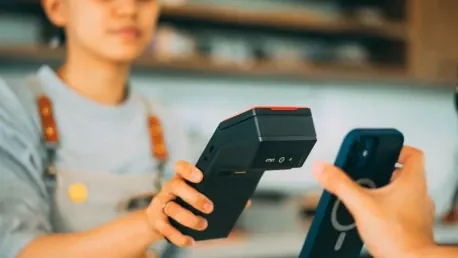In the rapidly evolving retail landscape, companies are increasingly turning to technology to enhance customer engagement and streamline operations. These strategic moves and technological investments made by several prominent retail and tech companies are reshaping the industry in significant ways, illustrating a keen understanding of consumer preferences and market trends.
H&M’s Strategic Investment in Voyado
H&M’s recent investment in Voyado, a Sweden-based customer experience platform, marks a significant step in their ongoing efforts to enhance customer engagement. Voyado specializes in helping retailers optimize e-commerce, create personalized experiences, and streamline communication. By acquiring a minority stake in Voyado, H&M aims to deepen its collaboration with the tech partner and amplify the impact of Voyado’s solutions on a global scale. This move underscores H&M Group’s commitment to driving profitable sales and enhancing customer-focused retail solutions.
The partnership with Voyado is a natural evolution of H&M’s longstanding relationship with the platform. By leveraging Voyado’s capabilities, H&M can better understand and respond to customer preferences, ultimately building long-lasting relationships. This strategic investment highlights the importance of technology in creating personalized customer experiences and optimizing retail operations. H&M’s example shows how retail companies are aligning their business strategies with advanced tech solutions to stay ahead in a competitive market.
Shifting Patterns in Seasonal Retail Hiring
The Challenger, Gray & Christmas report reveals a notable shift in seasonal retail hiring patterns, reflecting broader changes in the retail sector influenced by the rise of online shopping. Retailers added fewer seasonal jobs in November compared to the previous year, marking a significant trend in the labor market. The data indicated a 5% decline in retail hiring for November 2024 compared to the same month last year, making it the second-lowest total for November following 2022.
Conversely, the transportation and warehousing sector experienced an 11% increase in seasonal jobs, reflecting the increasing importance of logistics in the era of e-commerce. This trend highlights a transformation where traditional retail roles decline, while transportation and warehousing roles gain prominence, often offering higher wages and benefits. These insights paint a picture of retail adaptation, where logistical support becomes crucial in meeting the demands of online retail. This shift underscores the critical role that logistics and warehousing play in ensuring the efficiency of e-commerce and meeting consumer expectations.
Ace Retail Holdings’ Technological Advancements
Ace Retail Holdings’ selection of Mi9 Retail as its enterprise partner for merchandising and POS technology represents another example of retail transformation through technology. The decision to continue and expand this partnership, after an exhaustive review of top vendors, demonstrates a commitment to integrating advanced solutions into their operations. Mi9 Retail’s implementation will enhance Ace’s ability to update pricing, manage store-level operations more efficiently, and improve the overall customer shopping experience.
In addition to the Mi9 Retail partnership, Ace Hardware is rolling out digital shelf label technology from VusionGroup across their stores. These digital innovations underline Ace’s strategy to maintain competitiveness and operational excellence in the digital age. Celebrating its 100th year in business, Ace Hardware is leveraging technology to ensure it remains relevant and efficient in a rapidly changing retail environment. Such technological advancements are pivotal for traditional retail giants like Ace to stay competitive and responsive to market trends.
Bloomingdale’s E-commerce Enhancement
Bloomingdale’s new e-commerce partnership with Lucky aims to enhance the online shopping experience for customers, particularly in the luxury sector. By integrating their in-store inventory with Lucky’s platform, Bloomingdale’s allows consumers to check product availability and make purchases for same-day pickup or delivery through their preferred brand’s website. This initiative bridges online discovery with immediate product accessibility, offering a seamless connection between digital browsing and physical retail acquisition.
This strategic move demonstrates Bloomingdale’s innovative approach to luxury retail, enhancing customer convenience and aligning in-store experiences with online activities. By providing a seamless and efficient shopping experience, Bloomingdale’s is able to meet the high expectations of luxury consumers and stay competitive in the market. The integration of e-commerce and physical inventories ensures consumers have quick access to desired products, reflecting a trend towards more fluid and dynamic retail solutions that cater to modern shopping behaviors.
Brookshire Brothers’ Digital Personalization
Brookshire Brothers’ use of Birdzi’s technology for personalized engagement and analytics marks another significant investment in customer-focused digital solutions. By leveraging Birdzi’s Visper shopper engagement and outreach solution, along with its analytics and customer data platform, Brookshire Brothers aims to deliver personalized digital coupons and ad flyers, tailored to individual customer needs. This technology allows the retailer to gather new insights and adapt quickly to customer preferences, reinforcing its mission to put customers first.
Furthermore, Brookshire’s incorporation of eGrowcery’s digital tools enhances their end-to-end shopping experience, streamlining picking and fulfillment processes and further personalizing customer interactions. This comprehensive technology adoption highlights the retailer’s proactive stance in aligning operational efficiency with customer satisfaction. By investing in advanced customer engagement tools, Brookshire Brothers demonstrates a commitment to leveraging technology for optimizing both front-end customer interactions and back-end operational processes.
WHP Global’s Acquisition of Vera Wang
In today’s fast-paced retail environment, businesses are increasingly reliant on technology to boost customer engagement and streamline their operations. Through strategic investments in advanced technology, several leading retail and tech companies are transforming the industry on multiple fronts. This trend showcases a strong grasp of consumer behavior and current market demands.
From AI-powered customer service tools to sophisticated inventory management systems, these companies are leveraging tech solutions to create more personalized and efficient shopping experiences. Artificial intelligence enables retailers to offer tailored recommendations to each customer, ensuring that their needs and preferences are met more precisely than ever before.
Additionally, automation and data analytics are playing critical roles in optimizing supply chains and reducing operational costs. By employing these cutting-edge technologies, retailers can improve their agility and responsiveness to market fluctuations, thus maintaining a competitive edge.
E-commerce platforms and physical stores alike are benefiting from these advancements, creating a seamless and integrated shopping experience for consumers. Whether through mobile apps, online stores, or in-person shopping, the incorporation of technology is setting new standards in the retail sector. As the landscape continues to evolve, those who embrace these changes will likely set the pace, driving innovation and growth within the industry.









